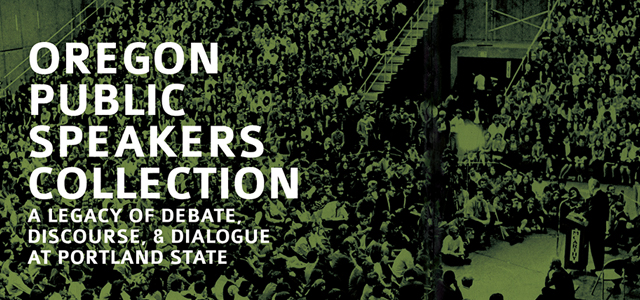Date
4-14-1971
Series
26th Condon Lecture
Length
1 hour 9 minutes
Notes
Robert A. Hinde, a British zoologist and professor at the University of Cambridge, focused his attention in this lecture on how the study of animal social behavior, particularly that of sub-human primates, can help us to learn more about human behavior.
Transferred and preserved by Portland State University Library’s Special Collections with the generous support of the Institute of Museum and Library Services through the Library Services and Technology Act, administered by the Oregon State Library.
Subjects
Primates, Social exchange, Human behavior
Original Format
Reel to reel, 3.75 ips, 1/2 track
Rights
This digital access copy is made available as streaming media for personal, educational, and non-commercial use only. It cannot be reproduced in any form, distributed or played for commercial purposes. It is made accessible because of one or more of the following situations: the rights are owned by State Board of Higher Education, on behalf of Portland State University; Portland State University has permission to make it accessible; it is made accessible for education and research purposes under fair use; or there are no known restrictions on use. In the event that previously unknown information is shared that may change the status of this item, it will be immediately removed from public view until pertinent rights issues are clarified.
Persistent Identifier
http://archives.pdx.edu/ds/psu/11456
Recommended Citation
Hinde, Robert A., ""The Development of Social Behavior in Primates"" (1971). Special Collections: Oregon Public Speakers. 205.
http://archives.pdx.edu/ds/psu/11456
Included in
Behavior and Ethology Commons, Interpersonal and Small Group Communication Commons, Social and Cultural Anthropology Commons



Description
Transcript added February 1, 2021.
PSU Library Special Collections and University Archives presents these recordings as part of the historical record. They reflect the recollections and opinions of the individual speakers and are not intended to be representative of the views of Portland State University. They may contain language, ideas, or stereotypes that are offensive to others.